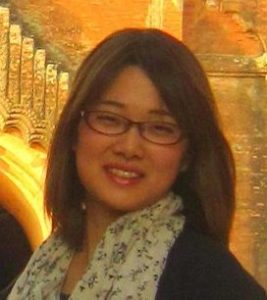Yuko graduated from SUA with a concentration in International Studies in 2015. She started working for the Japanese Ministry of Foreign Affairs in 2017. From 2018 to 2023, she will work in Embassy of Japan in Myanmar for foreign service. 
How did International Studies prepare you for life after graduation from SUA?
INTS opened my eyes and path for foreign service. When I saw media coverage on international affairs, I only used to get the impression of it, such as “oh it’s sad news” and “that’s terrible.” It was a simplistic empathy without much understanding of the background of events. However, INTS courses allowed me to question — “Why is this happening?” “What is the implication of this event?” “Where is the country heading for?” and “How will this affect to another country?” etc. By learning to think comprehensively as well as gaining knowledge-based facts of international affairs, I changed my perception of the world and realized my passion for foreign service. Thanks to all the classes, internships, and capstone mentoring, I passed the foreign service exam in Japan and will be working in the Ministry of Foreign Affairs with the language assignment of Burmese, my first-choice career.
What are some of your best memories and lessons from INTS classes?
Introduction to Southeast Asian Studies: The Intro to Southeast Asian Studies was a fun yet eye-opening introductory class for my first year experience at college. It informed me of diverse aspects the region is pregnant of, which was very new to me. My initial image of Southeast Asia took shape in this class. It also inspired me to study more in depth of Myanmar which I wrote my senior thesis on.
Posted Fall 2016
